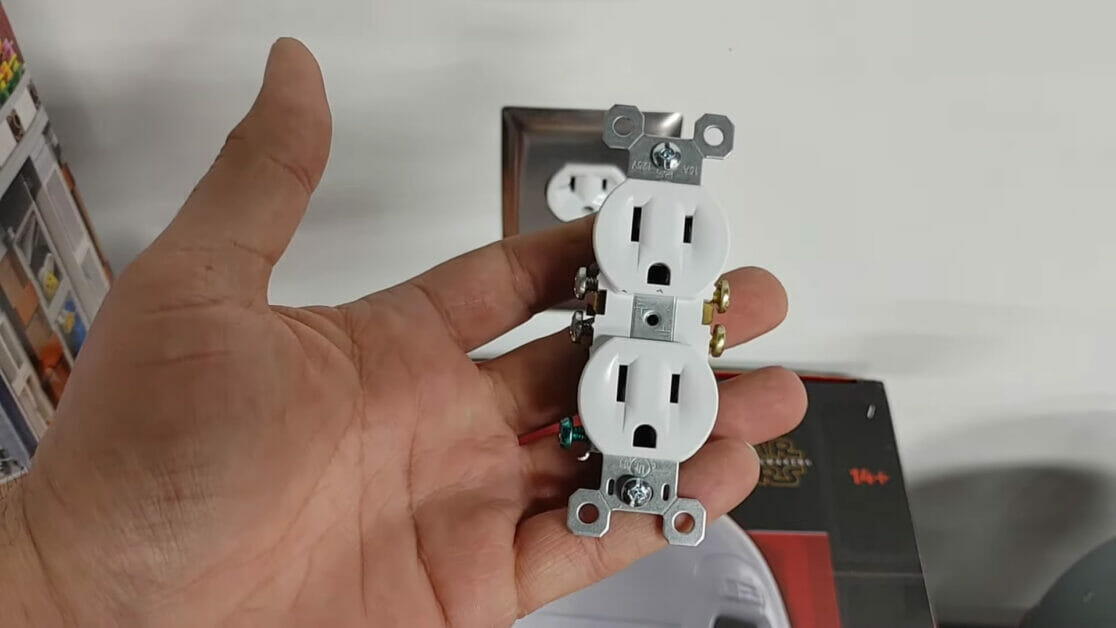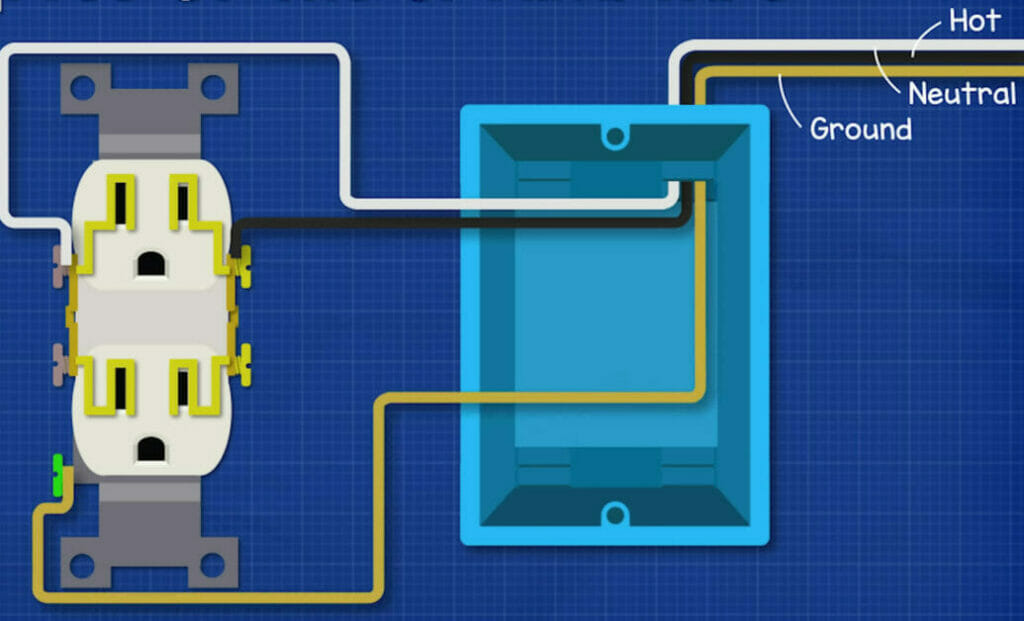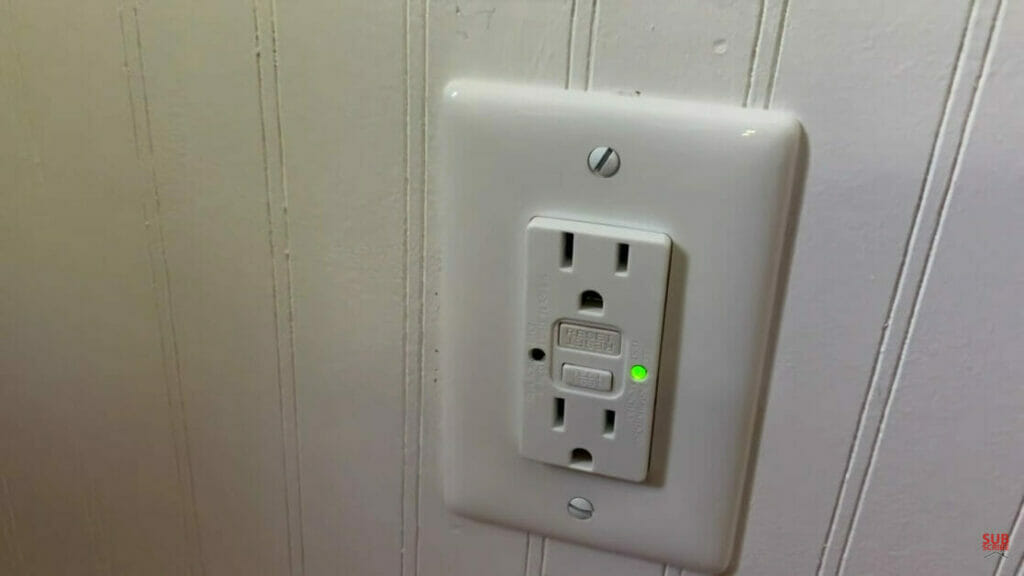How Much Does It Cost To Ground An Outlet (Guide)

Have you ever wondered about the cost of grounding an outlet in your home? You’re not alone. It’s a common question among homeowners, especially those living in older houses where outlets might not be grounded.
Grounding is crucial for safety, reducing the risk of electrical shocks or fires, but what’s the price tag attached to this essential safety feature?
Grounding an outlet typically costs between $100 and $200 per outlet, with total house grounding ranging from $1,300 to $3,000+. Home age, wiring, and regional labor rates affect the price.
I’ve navigated the maze of electricians’ quotes and DIY options to show clearly what you can expect to pay. Let’s dive into the nitty-gritty of grounding outlets and shed some light on this electrifying topic.
Introduction to Grounding Outlets

When I investigated older homes’ electrical systems, I discovered that grounding outlets is a key safety upgrade. Grounding means connecting an outlet to the earth, offering a safe path for electricity during a fault. This crucial step reduces the risk of shocks and fires.
Many pre-1960s homes have two-pronged outlets, missing out on this safety layer. But modern standards demand grounding in new builds. Upgrading ungrounded outlets in older homes boosts safety and meets today’s codes.
Attaching a grounding wire from the outlet to your home’s grounding system sounds simple, yet complexities can arise based on your electrical setup. It’s vital to grasp these nuances, as they impact cost and time for such upgrades.
Knowing what’s involved helps make a well-informed decision, ensuring your home’s safety while aligning with modern standards.
Cost Factors Explained

When I started researching the cost of grounding an outlet, I quickly realized that it wasn’t a one-size-fits-all solution.
Several factors can significantly influence the final price tag, making it essential to understand them before diving into the project.
- The age and accessibility of your home’s wiring play a critical part. Older homes, especially those built before the 1960s, might lack proper grounding and require a more comprehensive electrical system upgrade to meet current safety standards. This could involve replacing old wiring or adding new circuits, which can substantially increase costs.
- Another key factor is the number of outlets you need to ground. It’s pretty straightforward; the more outlets, the higher the cost. Electricians often offer a discount for grounding multiple outlets in one visit, which can be cost-effective for homeowners.
- Lastly, unexpected issues during the project can also affect the price. Older homes might reveal hidden problems once the electrician begins work, such as outdated wiring that does not meet current codes or damage from pests. These issues can complicate the grounding process, leading to higher costs due to the additional labor and materials required.
In my journey to better understand this process, it’s become clear that grounding an outlet is more than just a simple task. It’s an investment in your home’s safety and compliance with modern electrical standards.
Professional Installation Costs
When diving into the world of home improvements, especially something as vital as grounding outlets, it’s crucial to consider the role of professional electricians.
I’ve learned that DIY might save money upfront, but hiring a pro is paramount when it comes to electrical safety. So, what does professional installation entail, and more importantly, what does it cost?
First, it’s essential to understand that professional electrician rates vary widely across different regions. Living in a big city? Expect to pay more due to higher labor costs. In more rural areas, rates could be significantly lower. However, there’s a baseline for what one might expect.
| Factor | Cost Range |
|---|---|
| Labor | $40 – $100 per hour |
| Outlet Grounding Cost | $100 – $200 per outlet |
These figures are just a starting point. The complexity of your home’s electrical system could drive costs higher. For example, if your house still uses knob and tube wiring, you’re not just looking at grounding outlets but potential rewiring of your entire system to meet modern electrical codes. This can significantly inflate the project cost.
Moreover, if electricians discover unforeseen issues like pest damage or outdated components, this could add to the bill. That’s why getting a detailed quote before work begins is essential.
A reputable electrician will thoroughly assess your home’s electrical system, identify what needs to be done, and provide an accurate estimate.
Remember, grounding outlets isn’t just about adding a grounding wire. It’s about ensuring your home’s electrical system is safe and up to code.
Safety and Legal Compliance

When considering grounding an outlet, it’s crucial not to overlook safety and legal compliance. Through my experiences and extensive research, I’ve learned that the stakes are high when electrical systems are involved.
Grounding’s primary aim is to protect against electrical fires, shocks, and other dangers. Yet, the safety measures you’re trying to implement can become hazardous if not done correctly.
In my journey into DIY projects, I’ve learned that adhering to local building codes and regulations isn’t just about following the law—it’s about ensuring the safety of your home and loved ones.
Various locations have different requirements, and failure to comply can result in hefty fines and voiding of home insurance policies. This aspect cannot be taken lightly.
During one of my projects, I discovered that obtaining the necessary permits and having work inspected could prevent many problems.
Another layer of legal compliance involves understanding the specifications of your home’s insurance policy. Many policies have specific clauses related to DIY electrical work.
In one instance, I found that unauthorized electrical work led a friend to face significant challenges when a claim was denied due to non-compliance with safety standards.
- Grounding outlets must meet local building codes and regulations.
- Failure to comply can lead to fines and voided insurance.
- Specific permits may be required, along with inspections by certified electricians.
- Home insurance policies often have clauses regarding DIY electrical work.
Navigating the maze of safety and legal compliance has taught me the importance of diligence and responsibility in DIY projects. It’s not just about the immediate cost savings but ensuring that every step taken contributes to a safer and legally compliant home.
Regional Cost Variations
When I decided to dive into the costs of grounding an outlet, one of the first things I discovered was the significant impact of regional variations. It’s intriguing to see how much the price can fluctuate depending on where you live.
In the U.S., for example, the cost can vary widely from one state to another due to factors like labor rates, local regulations, and the cost of materials. It’s not just about the technical aspect of grounding an outlet but also how the local economy influences the overall expense.
In regions with higher living costs, such as New York or California, the price for grounding an outlet can be considerably higher than in states with lower living costs.
This difference is mostly due to the labor costs, which can be almost double in high-cost areas. Additionally, some localities have specific codes and regulations that may require additional steps or materials, further driving up the cost.
To give you a more concrete idea, I’ve compiled some average costs based on different U.S. regions:
| Region | Average Cost to Ground an Outlet |
|---|---|
| Northeast | $200 – $250 |
| Midwest | $150 – $200 |
| South | $100 – $150 |
| West | $175 – $225 |
These figures are averages and can vary within each region based on the factors mentioned earlier. It’s always best to get multiple quotes from licensed electricians in your area to get a more accurate estimate for your situation.
Remember, while opting for the cheapest option might be tempting, ensuring the work is done correctly and safely is paramount. This sometimes means spending a bit more to hire someone highly experienced and familiar with your area’s regulations. This not only ensures a safer outcome but also helps avoid any legal or insurance issues.
The Final Verdict on Grounding Costs
When it comes down to grounding electrical outlets, there’s no one-size-fits-all answer to how much it’ll cost. Typically, electricians charge hourly, and grounding an outlet can take one to several hours, depending on the complexity.
Based on my research and experience, here’s a rough breakdown of potential costs you might encounter:
| Service | Cost Range (USD) |
|---|---|
| Electrician Hourly Rate | $50 – $100 |
| GFCI Outlet | $10 – $25 per unit |
| Additional Materials | $5 – $30 |
| Entire House Grounding | $1300 – $3000+ |
Remember, opting for a full-house grounding rather than addressing single outlets can ultimately save money in the long run, albeit being a larger upfront investment.
Key tips to remember:
- Bundling jobs can significantly reduce overall expenses.
- You can DIY minor tasks, like replacing outlets, if you’re confident in your ability and always adhere to safety guidelines.
- Always prioritize quality and compliance over saving a few bucks to avoid future fire hazards or legal issues.
Grounding electrical outlets is undeniably important in ensuring your home’s safety and compliance with local codes. While the upfront cost might seem steep to some, the peace of mind and protection it offers can be invaluable.
Resources
Organizations
- National Fire Protection Association (NFPA) – https://www.nfpa.org
- International Association of Electrical Inspectors (IAEI) – https://www.iaei.org
- Institute of Electrical and Electronics Engineers (IEEE) – https://www.ieee.org
Books
- “Wiring Simplified: Based on the 2020 National Electrical Code” by Frederic P. Hartwell, Herbert P. Richter, and W.C. Schwan – https://www.barnesandnoble.com/w/wiring-simplified-frederic-p-hartwell/1142524149
- “Electrical Grounding and Bonding” by Phil Simmons and Simmons Electrical Services – https://www.cengage.com/c/electrical-grounding-and-bonding-6e-simmons/9780357371220/
Website Resources
- Mike Holt Enterprises – https://www.mikeholt.com
- This Old House – https://www.thisoldhouse.com
- The Engineering Mindset – https://www.theengineeringmindset.com
Video References
Top Homeowner
The Engineering Mindset
Bevins Builds
This Old House
